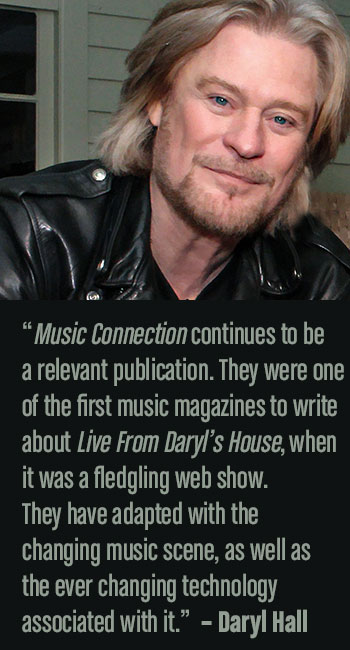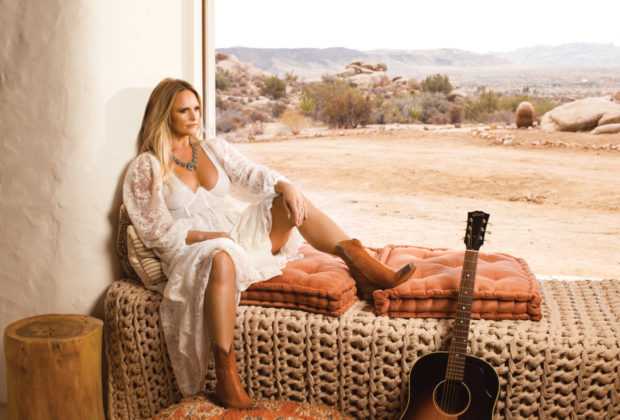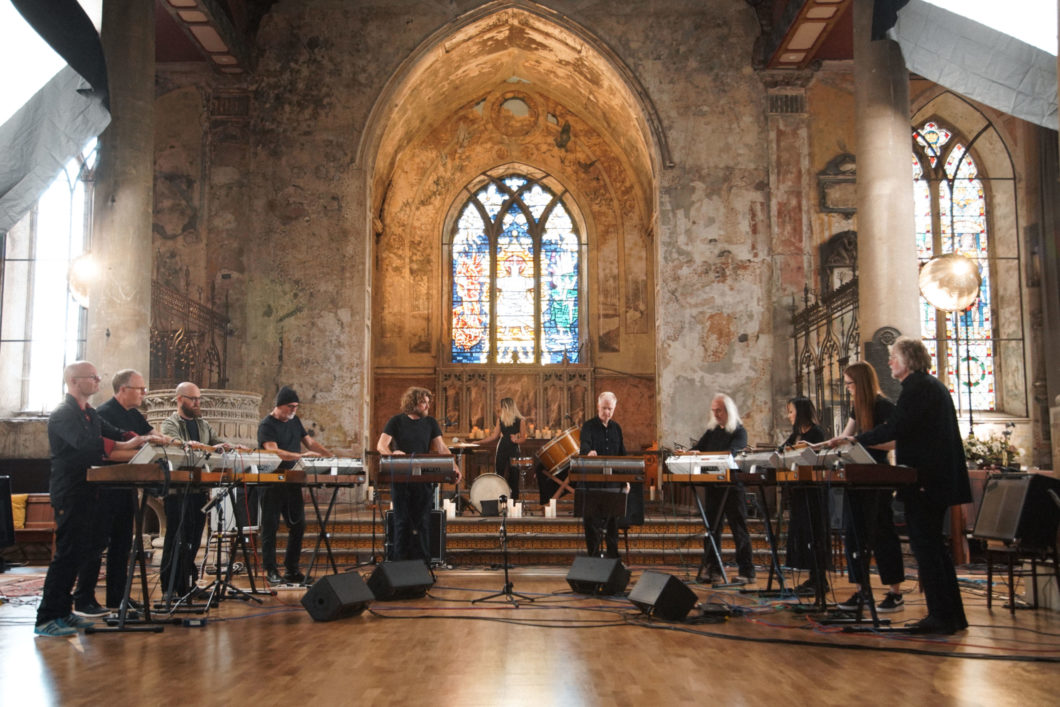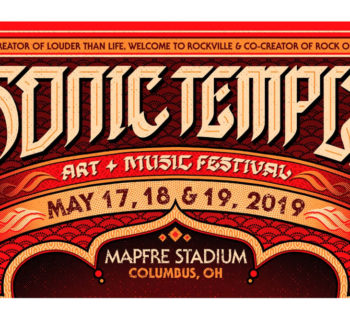Las Vegas Spotlights and Tall Tales
A tough talking trailblazer, a tequila-tippling Texan, and a remarkable storyteller with a repertoire of indelible songs. As the most awarded artist in the Academy of Country Music’s history—with 37 honors including this year’s Entertainer of the Year title—Miranda Lambert commands a towering career pinnacle.
Lambert’s latest release, Palomino, honors her history, weaving classic country influences into an artistry that is tough, tender, and granular, with ties to both small town rural roots and an allegiance to the enduring legacy of her home state’s legendary singer-songwriters.
On this morning, Miranda Lambert is in Nashville after her inaugural Las Vegas residency. In this exclusive Music Connection interview, she’s ready to talk about music.
Music Connection: You recently introduced “Miranda Lambert: Velvet Rodeo The Las Vegas Residency,” at Zappos Theater at Planet Hollywood Resort & Casino with tickets now on sale for Spring 2023. How do you translate the intimacy of your presentation to a cavernous Las Vegas showroom?
Miranda Lambert: I like the fact that every seat is a good seat, and it is intimate, because it’s a theater. The fact that it’s a stationary show, where we don’t have to move our stuff every night with the trucks and travel to the next city allows us to have so much more production that we’ve ever had before. The cross between a big production and everyone able to see is a successful juxtaposition. And my jacket catches on fire, which is pretty damn cool.
MC: In looking at the set list, it is an encompassing soundtrack to an almost 20-year career. How did you curate the repertoire?
Lambert: We spent a lot of time on the song selection. It’s what started the whole thing. We didn’t do any design or production until we honed in on the set list. My musical director, Danny Mitchell, went through my whole catalog. Our biggest question was how do we get from “Kerosene” to Palomino? I wanted to have some nostalgia, and have some video elements, as well. Those videos really were such a part of the songs, like “Kerosene” for instance.
MC: You go back to a song that you famously covered, the poignant “The House That Built Me,” written by Tom Douglas and Allen Shamblin.
Lambert: I got lucky enough that it landed around me, and I could catch it and hold it close, because it’s one of the most special songs that I have ever heard in my life. I don’t take it lightly. I wanted to make sure that I executed it perfectly, because that song deserves it. It’s all of our stories.
MC: Speaking of Palomino, the song “Carousel” is an emotional standout, with a narrative about a faded circus performer. How does it fit into the Velvet Rodeo presentation?
Lambert: It’s a huge moment in the show. It’s not stripped down, but it’s more dramatic because of lighting and production. Sometimes it’s hard to get through. Being a writer on it, I’m still so in it and so wrapped up in the story every time I sing it. And it’s heartbreaking. Singing it every night, I want to make sure that I’m getting the story across. I sing as close to the mic as I can, and we use the tricks of the trade with the lighting and everything. That’s something I appreciate about the Las Vegas setting. You can highlight lyrics more because you’re indoors and it’s controlled. For a song like that, it’s really cool to set it up and make the production a part of the story.
MC: The songs on Palomino are character- and locale-driven. How were these tales conceived?
Lambert: I started writing the songs in 2020. We spent a lot of time developing these characters and these stories. It’s not a concept record, but it’s definitely got a thread. I spent a lot of my writing career writing about personal experiences, or those of people close to me, and this is one that was like “Let’s go out of ourselves and find some cool places and some cool people that we can make up.”
MC: Country is certainly the bedrock of Palomino, but we can hear soul, gospel, blues and Southern rock added to the mix.
Lambert: I pulled a little bit more from other influences, more than I have in the past. Linda Ronstadt and ZZ Top—trying to get those coming in.
MC: How does Linda Ronstadt influence you?
Lambert: Watching her documentary, she was so committed. “I had to sing this song or I would just die.” She meant it, with that fire inside her eyes. I want that commitment, that crazy passion for something, even just a tenth of what she had. The skillfulness and the longevity of her career are very inspiring to me.
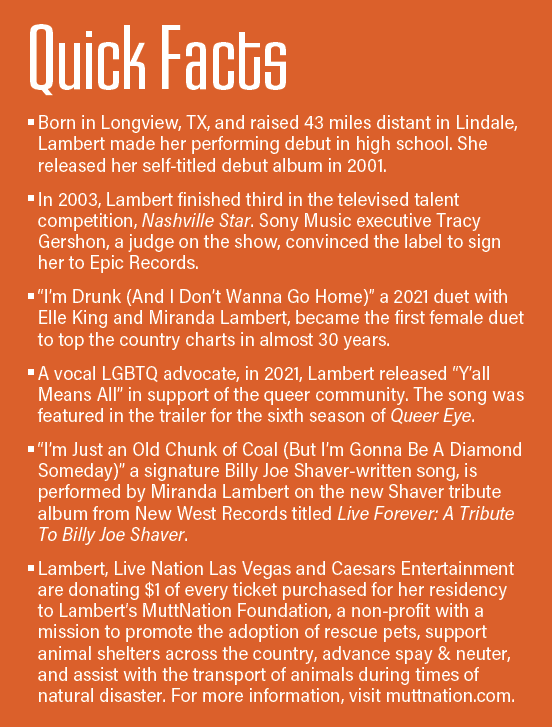
MC: We hear a lot of new voices in country music, with African American artists, LGBTQ folks, and others who might not have been included a decade ago. Is this a trend determined by the times?
Lambert: I think it’s just how it falls. It’s probably always been that way, but we’re seeing more of it now. I see this new crop of what I call kids come up, and I’m excited, because there are a lot of different sounds. We survived the Bro Country era, which makes me happy that it’s over. It was a stagnant time for me.
MC: On a track from Palomino, the famous party band The B-52’s join you on a song about a riverboat, “Music City Queen.” How did this come about?
Lambert: We went for it! We were at my farm writing with Natalie Hemby and Luke Dick. Natalie was singing the “rolling down the river,” and Luke said, “What if we had the B-52s on this song?” And I was like, “Oh my God! That would be epic.” I called my manager and said, “I don’t know if you know this band, or what they’re doing, or even if they are doing anything at the moment, but can we get ahold of them and see if they’d be interested?” They were all in different places, Atlanta, California, New York. So, they Zoomed with Jon Randall and Luke to get their parts down at studios across the country.
MC: You often reference music that was made before your time.
Lambert: I think I was born a little late, from the music that I’m drawn to, and that I enjoy. There didn’t used to be genres. There was Creedence Clearwater Revival and Lynyrd Skynyrd, all on the same radio stations. I love modern music, but I love old music—it’s what I gravitate to when I’m listening in my car: old country, old anything. But I’m in it. I hope that 30 years from now someone feels that way about my music. I want that nostalgia for people who listen to me. I think I pull from that stuff. It stuck out to me, because it mattered to me.
MC: What other historic music made an impact?
Lambert: I sing as a male character in “If I Were a Cowboy.” I got that from Emmylou Harris, who would never change the genders. And John Prine with “Angel From Montgomery,” when he assumed the character of an old woman. I love that it doesn’t have to change. Once I heard Emmy do it, I thought I could change the rules. Emmylou’s is a career that I have longed for. I said from day one, “I want to be a singer-songwriter, and I want to have a long career and to make a mark on country music.”
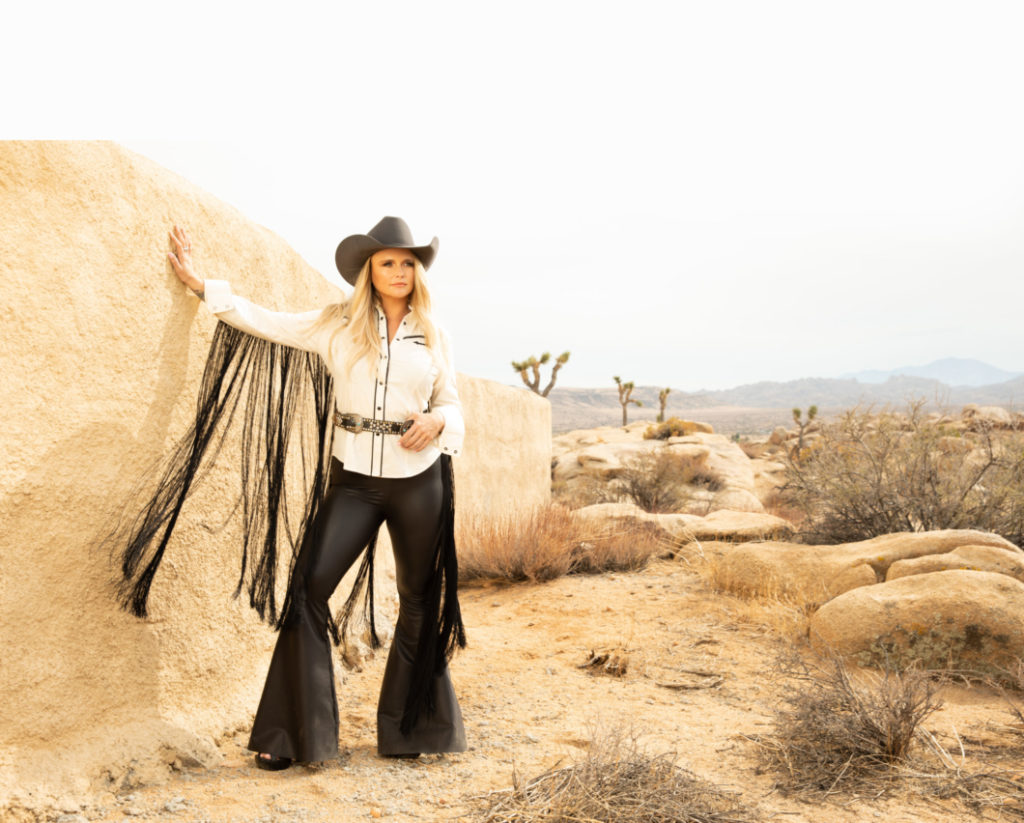
MC: Your home state of Texas is famous for introducing notable songwriters, Guy Clark, Townes Van Zandt, Steve Earle, and Rodney Crowell among them. What is it about the culture that gives us so many phenomenal storytellers?’
Lambert: We do grow a different crop there. I’m happy to be one of them. There’s such a nurturing music scene. Starting out there, you can have a whole career there without ever leaving the state. It’s so vast and so huge. There is always an audience, and always somewhere to play. Growing up, as a budding want-to-be- songwriter back in the day, there were so many opportunities, and so many places that help grow artists. I think that culture is why so many of us come from there.
MC: And such great sounding names for titles and lyric: Amarillo, Luckenbach, El Paso, San Antonio, Abilene, Laredo.
Lambert: You could write 20 records and never run out of towns!
MC: Speaking of Texas, Palomino was preceded by The Marfa Tapes, an around the campfire project from 2021 that joined you with Jack Ingram and Jon Randall in a stripped down, low-fi collaboration.
Lambert: That’s one of my favorite projects I’ve ever worked on. It was so organic, the way it came together, Jack, Jon, and I spent seven years writing songs, and they are such great friends of mine. Two Septembers ago, it was like “So what are we going to do with these songs? They are just sitting there, and they will never see the light of day.” We just had the harebrained idea to record them and put them out recorded in one take on one microphone. Once we got into it, it was a lot more in depth than I thought emotionally. We had lived with these songs for so long, and I was just happy to put them down in a recording.
MC: It was also captured visually as a documentary.
Lambert: We had a videographer there to get some B-roll, I thought. Spencer Peeples made this beautiful film. So, a film and a double record: we didn’t know what we were getting into. It’s one of my favorite things. There is nowhere to hide. And it’s not every day that the fans get to hear the actual way that the song starts, and how raw and how scary that can be. I will always say forever that this is one of my favorite things that I have ever been a part of.
MC: A couple of the songs from The Marfa Tapes are recast with bigger productions on Palomino. “Waxahachie” opens with a line that says “Nobody ever left New Orleans as mad as I was / I wrote a lipstick letter on the mirror with a bourbon buzz.” What an introduction to the story.
Lambert: I feel like that, too—it sets the whole scene. You know so much about this girl before you hear another word. It also comes from three Texans sitting around a fire in West Texas. We pretty much write about where we’re from because we’re proud of it. That’s number one. We have it all in common. But it’s not just about Texas; it’s about rural life. And that’s what country music is. To me, the first line in a song is one of the most important, because you’ve got to set it up. I want to write some of those first lines that make you want to start over listening because you weren’t paying enough attention and you don’t want to miss part of the story.
MC: Do you have a songwriting superpower?
Lambert: I’m definitely not a bridge writer—I run from the bridge—I think we all do. Whoever gets the short end of the straw has to deal with it. Titles are a part of it. Bringing the country, down-to-earth way of putting things. You can get all fancy and have dollar words, but I’ll throw in an “ain’t” and it changes the sentence, and it feels like me.
MC: You wrote “Geraldene” with Jack Ingram and Jon Randall, and we first heard it on The Marfa Tapes. On Palomino it reappears with full production.
Lambert: I had that title on my phone for a long time. I watched the movie The Last Waltz 100 times, and I watched the documentary Heartworn Highways 100 times, and I tried to gather new things from those two every time I watch them. In Heartworn Highways, Townes Van Zandt is introducing a dog, and he says, “This is my dog Geraldene,” and I thought it was such a cool name, and I wrote it in my phone. When Jack and Jon and I were together in Marfa we just pulled from the air, or whatever was going on, and whatever some of us had written down, whether it was weird or not. “Geraldene” popped up, and they were like “ooh, who is she?” And I was like “I don’t know.”
MC: Pistol Annies is a trio that enjoins you with Ashley Monroe, and Angaleena Presley. Your Interstate Gospel was nominated for a Grammy and Hell of a Holiday has both original songs and covers.
Lambert: Pistol Annies is another passion project—we’ve been together for 11 years, which is crazy to think about. Making music with my friends is where all of this starts. How lucky am I that some of my best friends are the greatest songwriters that I know? Why not do that together? With Jon and Jack or Natalie Hemby, Pistol Annies, they are all like family to me.
MC: How is the dynamic different when writing with women?
Lambert: It’s two different perspectives. I couldn’t have written the Pistol Annies records with Jon Randall and Luke Dick, and I probably couldn’t have written The Marfa Tapes with those girls. It’s the chemistry, the stories and the background, and how that chemistry makes you react to each other when you get into a room.
MC: Where do you write?
Lambert: My manager has a really cool basement that I use, or music rooms at Universal. But I do a lot of writing outside. With The Marfa Tapes it was pretty much all done outside. With Palomino a lot of that was done on a porch at my farm, Pistol Annies, all of Interstate Gospel was done on a porch at my farm, and a bunch of writing for that project was also in the Smokey Mountains. I prefer to be outside all of the time. It feels like a wide-open space, so there’s a wide-open space on the page. So that’s where I do my best writing.
Contact Ebie McFarland, ebie@ebmediapr.com
Photos by Robert Ascroft for Fourlevin agency
